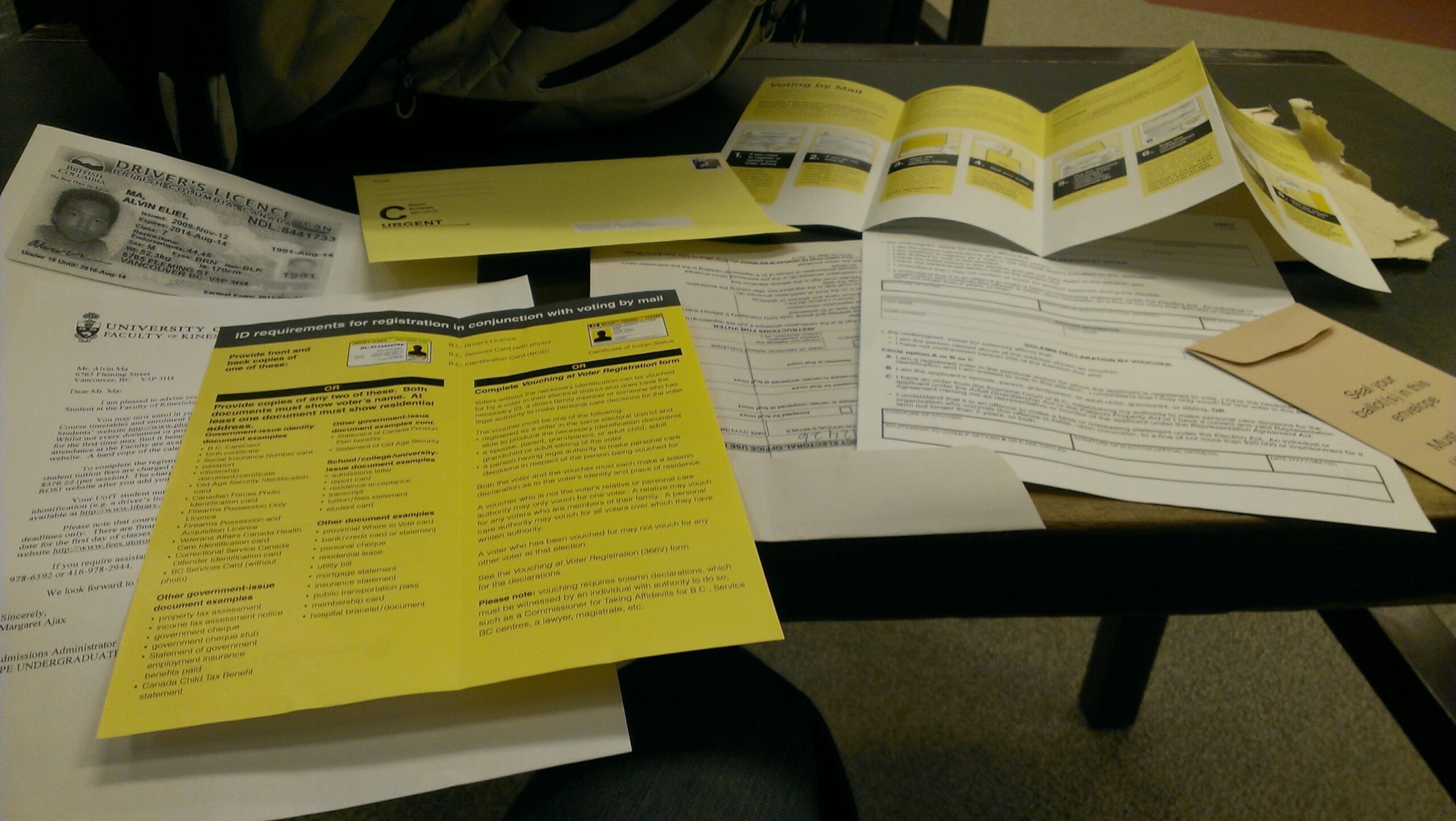“We need proportional representation to increase voter participation”
May 28th, 2013 Why do few people vote to determine the outcome of elections? Citizen apathy, negative campaigning and lack of understanding of the voting process are responsible, writes Alvin Ma, 21, a Commonwealth Correspondent from Canada argues. He believes proportional representation exemplified by the German voting system can increase public participation in elections.
Why do few people vote to determine the outcome of elections? Citizen apathy, negative campaigning and lack of understanding of the voting process are responsible, writes Alvin Ma, 21, a Commonwealth Correspondent from Canada argues. He believes proportional representation exemplified by the German voting system can increase public participation in elections.
Reminiscing about our past, a friend brought up the time he interviewed and wrote an article on Christy Clark for our school newspaper. Then-host of a local radio talk show, she came to our school to promote Pink Shirt Day, a symbolic response against bullying.
Fast forward four years and now, two years after becoming Premier of British Columbia, a Canadian province with a population of 4.5 million, the charismatic Clark has led her BC Liberal Party into a fourth-consecutive term. Let me quote myself from an article I published in my high school newspaper four years ago:
Only 50 per cent of eligible voters voted in the British Columbia provincial election…Students with birthdays before and including May 12, 1991, were eligible to vote. However, the voter turnout was, at best, in line with the rest of the apathetic province.
One Grade 12 student explained, “I am just not in the loop about public issues, so I didn’t bother.”
Another Grade 12 student added, “I didn’t know the benefits of each candidate and I was too lazy. Parents should just make sure this election benefits our generation.”
I’m curious to see how the youth vote plays out, as only 39% of registered voters aged 18 to 24 (with only 69% of them on the actual voters’ list) bothered to vote in the 2009 provincial election. Regarding this issue of voter apathy, I somewhat agree with Pete McMartin when he says:
“There are also suggestions to make voting more accessible — which is to say, easier, and on the same scale of importance as ordering a takeout pizza. Electronic or digital voting has been suggested as a way of “engaging” young voters — so, you know, they can determine the next government between updating their Facebook accounts…Personally, I think this is — what’s the word? — crap. I would make voting more difficult, not less so, given the sacrifices that have been made to ensure we have that right. Voting is a bequeathment, not a birthright, and it shouldn’t be seen as an inconvenience to be rectified by iPhone. It needs defending, not diluting.”
Well, I did my part and mailed back my absentee ballot from Toronto, located three time zones east of my hometown of Vancouver, British Columbia. I had to place the ballot in an envelope which went in Envelope A, which correspondingly went inside Envelope B, which alongside other photocopied documents, went inside Envelope C. The majority of voters who live in Vancouver and the province of British Columbia merely have to walk or travel a short distance to the local polling booth.
With that being said, I can’t say I agree with McMartin when he talks about how absent voters should be “ashamed.” I know readers from other countries might think it is ridiculous that a democratic country ranked among the best in the world would not take advantage of the system. Nevertheless, the above 39% statistic arguably shows stability, as Professor Nelson Wiseman states that the issues debated are not particularly significant, with low stakes on the line. Furthermore, I don’t think an artificial increase in voter turnout numbers by uninformed voters who vote for the sake of voting would benefit society. I just hope that through my current job as an educator, my students would increase genuine peaceful engagement in the democratic process.
Then again, it can also be argued that the voter apathy comes from negative campaigning, as it works in discouraging potential voters from selecting a certain party without necessarily bringing them to the negative campaigner’s party. Negative campaigning occurs most frequently in places where a two-party system exists and there are no alternatives. Despite a multi-party system in British Columbia and Canada, I still insist we need a shift to a form of proportional representation.
One of the most important concepts in political science is Duverger’s Law, which states that “single member plurality favours a two-party system”. Though some people may see it as confusing, Germany’s mixed-member proportional representation system is probably the best system out there. You get two votes: one for the constituency representative and one for the party (they don’t have to be from the same party; for example, I could vote for John Smith of the Liberal Party and for the Green Party at the same time).
While ensuring the preferred individuals get elected, the total number of seats is nevertheless relatively proportional to the popular vote (though parties have to meet a minimum threshold of five per cent of the popular vote in order to exclude radical parties). Unfortunately, in my opinion, people in British Columbia voted against a 1-2-3 preference system in the last election because they found it was too difficult. The German-style mixed-member proportional representation is, admittedly, ten times more complex. As for me, I personally see it as scaling marks. You don’t need to know the process, but if it is beneficial and leads to other enjoyable moments that my friend and I periodically experienced in high school, then it is all dandy.
…………………………………………………………………………………………………………………
About me:
I’m currently a student and research assistant for the Centre for Sport Policy Studies at the University of Toronto. I also teach English at an ESL language school and serve as a private tutor for various other subjects. Passionate about teaching, sports, and politics, I hope to blend these interests and one day teach university-level courses on the politics of sports.
…………………………………………………………………………………………………………………
Opinions expressed in this article are those of the author and do not necessarily represent the views of the Commonwealth Youth Programme. Articles are published in a spirit of dialogue, respect and understanding. If you disagree, why not submit a response?
To learn more about becoming a Commonwealth Correspondent please visit: http://www.yourcommonwealth.org/submit-articles/commonwealthcorrespondents/
…………………………………………………………………………………………………………………




